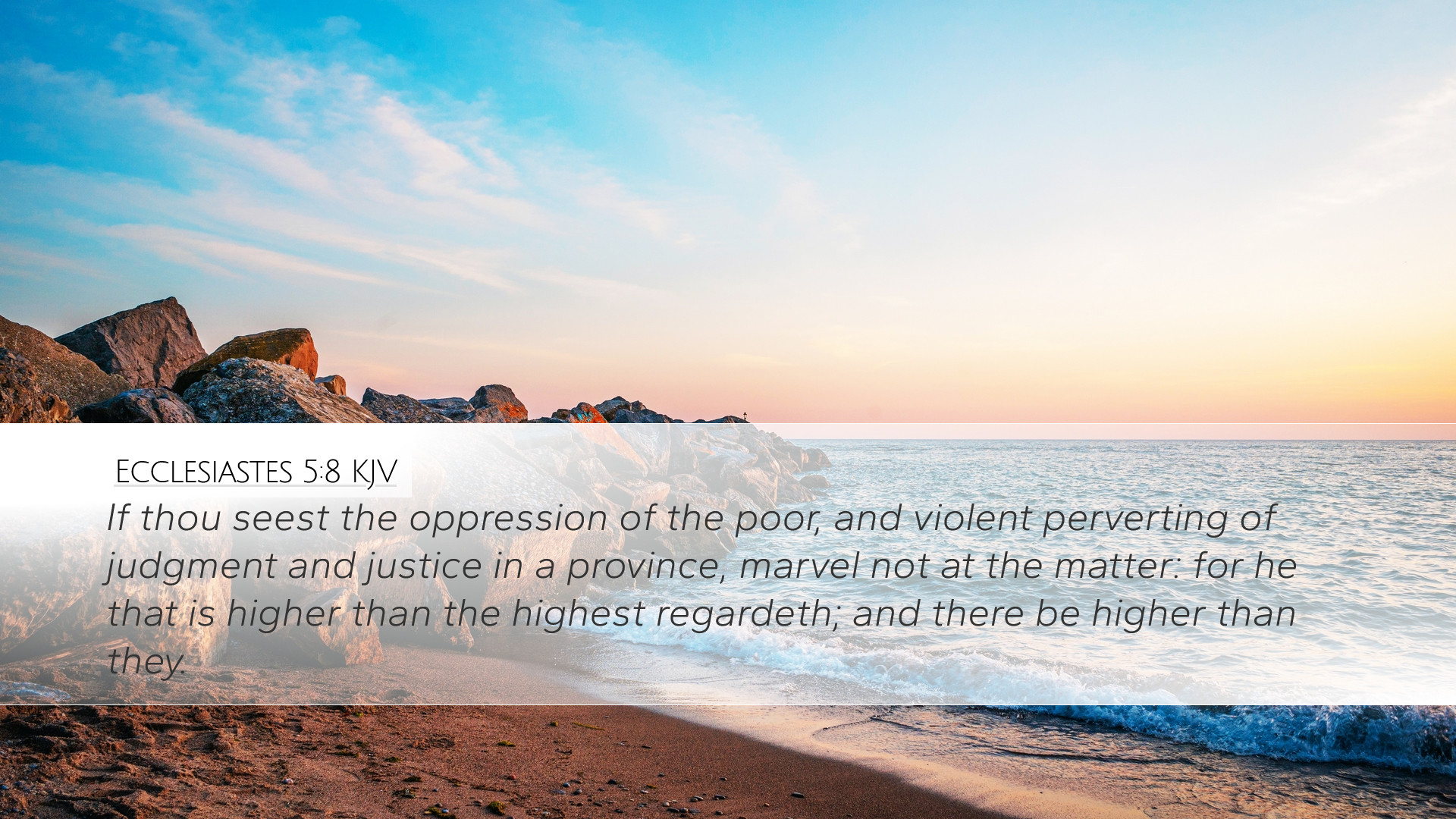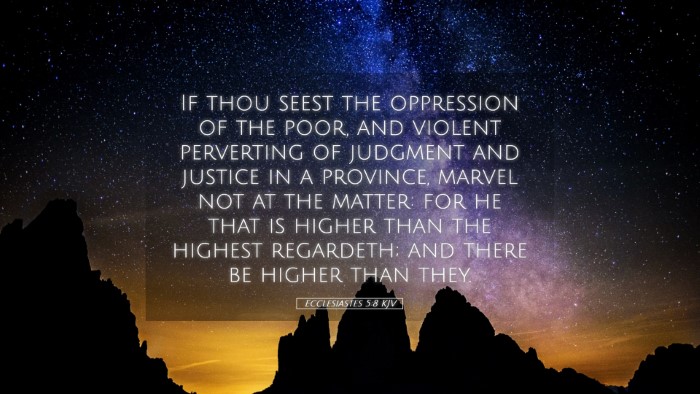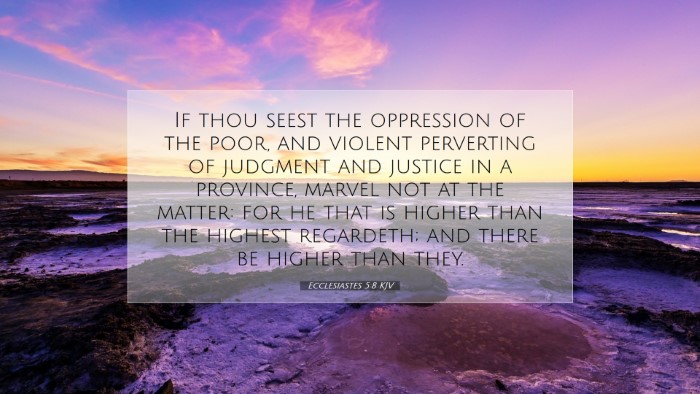Commentary on Ecclesiastes 5:8
Ecclesiastes 5:8 (KJV): "If thou seest the oppression of the poor, and violent perverting of judgment and justice in a province, marvel not at the matter: for he that is higher than the highest regardeth; and there be higher than they."
Overview
The book of Ecclesiastes, traditionally attributed to Solomon, is a profound exploration of the meaning of life and human experience. Ecclesiastes 5:8 highlights social injustice, oppression, and the sovereignty of God over human affairs. This verse serves as a poignant reminder to believers regarding reacting to injustices in the world, and it reassures them of God's ultimate authority and awareness in these matters.
Historical Context
The backdrop of Ecclesiastes is one of existential reflection amidst a society marked by both wealth and poverty. In this chapter, Solomon reflects on the realities of life within a monarchy, where issues of justice often become entangled with power dynamics. His observations are particularly relevant for leaders and those in positions of authority.
Insights from Commentaries
Commentary by Matthew Henry
Matthew Henry notes that this verse admonishes us to not be overly astonished by the injustices prevalent in society. He argues that human judgments can be flawed and biased, and thus, it is not uncommon to witness the poor being oppressed while the powerful exploit their positions. He emphasizes that God's sovereignty stands above human misjudgments and that ultimately, divine justice prevails.
Key Points from Henry's Commentary
- Human Oppression: The presence of oppression should not surprise believers; it is a common aspect of the fallen world.
- Divine Oversight: God is aware of all injustices, and His higher judgment will ultimately rectify the wrongs.
- Call to Action: Rather than being disillusioned, believers should maintain hope and engage in just actions.
Insights from Albert Barnes
Albert Barnes aligns with Henry's thoughts but goes a step further by interpreting the phrase "he that is higher than the highest" as a reminder that no earthly power is beyond the scrutiny of God. He emphasizes that authorities may pervert justice for personal gain, but this does not escape God's notice. Barnes highlights the inherent responsibility of the populace to remain aware of these injustices while trusting in God's execution of justice over time.
Key Points from Barnes' Commentary
- Perversion of Justice: The commonality of distorted justice is acknowledged, urging believers to trust God in light of injustice.
- Human Accountability: Every ruler and authority will ultimately answer to God for their actions.
- Encouragement to the Oppressed: A call for the oppressed to find solace in God's ultimate authority and judgment.
Insights from Adam Clarke
Adam Clarke offers a detailed interpretation that provides rich theological insights. He discusses the implications of seeing the oppression of the poor, suggesting that the observation should lead to a deeper understanding of God's character. Clarke posits that witnessing such injustices can lead to existential questions and doubts; however, he reassures the audience that faith must remain steadfast, trusting in God's ultimate plan and purpose that transcends human understanding.
Key Points from Clarke's Commentary
- Spiritual Reflection: Observing injustice should prompt reflection on one’s own faith and understanding of God.
- Faith Amidst Skepticism: Believers are encouraged to maintain faith in God's ultimate justice even when circumstances seem dire.
- God's Sovereignty: A prime emphasis on God's sovereignty serves to bolster hope amidst worldly despair.
Theological Implications
Ecclesiastes 5:8 carries significant theological weight, particularly concerning the sovereignty of God in the face of injustice. It invites deep reflection on the nature of mercy, justice, and our response to societal wrongs. The commentaries encourage believers to actively engage in alleviating suffering while remaining rooted in the knowledge of God’s ultimate authority as a source of hope.
Conclusion
In summary, Ecclesiastes 5:8 serves as a critical reminder of the complexities of justice in earthly realms and the assurance of God's oversight. Believers are called to both observe and respond to social injustices with wisdom and faith. The insights from Matthew Henry, Albert Barnes, and Adam Clarke collectively underscore the need for a mature theological response to life's inequities, grounding their observations in the promise of divine justice.


